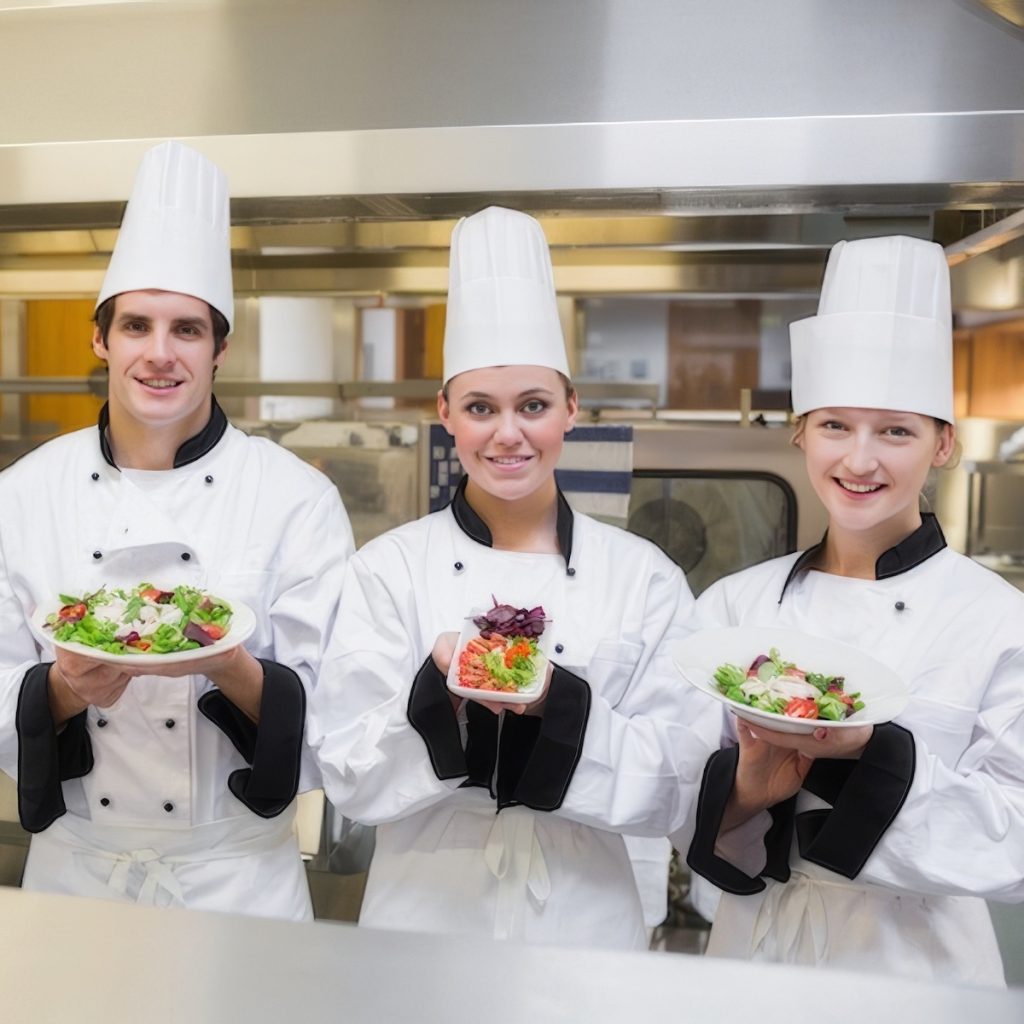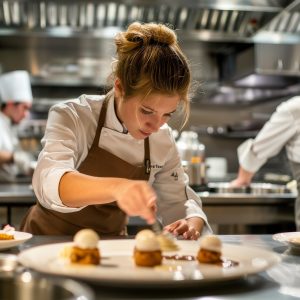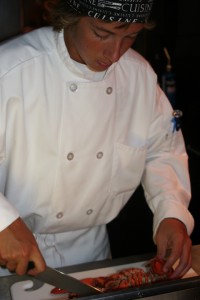Where Did the For-Profit Culinary Schools Go?
Not too many years ago, there were dozens of for-profit culinary schools. I know, I had them listed her on the Reluctant Gourmet. Now, there are just a few. Where did they go?
For-profit culinary schools have seen a decline in recent years due to several factors that have reshaped the landscape of culinary education. While these institutions once flourished, attracting aspiring chefs with promises of prestige and lucrative careers, the reality has shifted significantly.
First and foremost, the culinary industry itself has transformed. With the rise of celebrity chefs, cooking shows, and the foodie culture, culinary knowledge has been democratized. As a result, many people no longer see the need to attend an expensive for-profit culinary school when they can learn from online resources, cooking classes, apprenticeships, or even from the comfort of their own kitchen.
Additionally, the cost of attending these for-profit culinary schools has become prohibitive for many prospective students. Tuition fees are often exorbitant, and the promise of high-paying jobs after graduation doesn’t always materialize. As students graduate with significant debt and struggle to find well-paying positions in the industry, the return on investment for culinary school becomes increasingly questionable.
Moreover, the traditional model of culinary education offered by for-profit schools may not align with the changing demands of the industry. Many employers now value real-world experience and practical skills over formal education credentials. As a result, aspiring chefs may opt for alternative paths such as apprenticeships, internships, or working their way up through the ranks in professional kitchens.
Covid
Furthermore, the COVID-19 pandemic has dealt a significant blow to the hospitality industry as a whole, including culinary schools. With restaurant closures, reduced dining capacities, and shifts to remote work and learning, many culinary schools have faced financial challenges and had to adapt their programs to the new reality. This has further contributed to the decline of for-profit culinary schools as students reconsider their career choices and weigh the risks associated with entering a struggling industry.
In contrast, nonprofit culinary schools and community colleges have recently gained popularity. These institutions often offer more affordable tuition, hands-on training, and connections to local culinary communities. Additionally, many nonprofit schools prioritize social impact and community engagement, which resonates with students who are seeking meaning and purpose in their careers beyond just financial gain.
The decline of for-profit culinary schools can be attributed to a combination of factors, including shifts in the industry, rising costs, changing educational preferences, and the impact of external factors like the COVID-19 pandemic. As the culinary landscape continues to evolve, the future of culinary education may lie in more accessible, affordable, and flexible models that empower aspiring chefs to pursue their passion while adapting to the demands of the modern world.
Pell Grants
Pell Grants, a form of federal financial aid for students pursuing higher education, have had a notable impact on for-profit culinary schools. These need-based grants, which do not need to be repaid, were intended to expand access to education for low-income students. However, their availability also influenced the dynamics of for-profit culinary education.
Initially, for-profit culinary schools benefited from the availability of Pell Grants. These grants provided financial assistance to students who might not have otherwise been able to afford tuition at these institutions. As a result, for-profit culinary schools experienced an influx of students seeking to pursue their culinary dreams with the help of federal aid.
However, this influx of students relying on federal aid also raised concerns about the quality and value of education provided by for-profit culinary schools. Critics argued that some of these institutions prioritized profit over educational outcomes, leading to high dropout rates, low job placement rates, and significant student debt burdens.
In response to these concerns, the federal government implemented regulations to ensure that institutions receiving federal financial aid, including for-profit culinary schools, met certain standards of accountability and transparency. These regulations included requirements related to program eligibility, accreditation, student outcomes, and student debt levels.
One significant regulation was the “gainful employment rule,” which sought to hold for-profit schools accountable for the employment outcomes of their graduates. Under this rule, programs that consistently left students with high levels of debt relative to their earnings could lose eligibility for federal financial aid, including Pell Grants. This put pressure on for-profit culinary schools to demonstrate that their programs led to meaningful employment opportunities for graduates.
Due to these regulations and increased scrutiny, many for-profit culinary schools faced challenges maintaining enrollment and financial viability. Some institutions closed their doors, while others were forced to adapt their programs and practices to comply with federal requirements and address concerns about quality and value.
Pell Grants influenced for-profit culinary schools by providing financial assistance to students and prompting increased regulation and scrutiny of the sector. This, in turn, impacted enrollment, financial stability, and the overall landscape of culinary education.

Who’s Left?
Please note that this list may not be exhaustive, as new schools may have emerged since then, and the status of existing ones may have changed. Here are some notable for-profit culinary schools:
- The Culinary Institute of America (CIA) – Though primarily known as a nonprofit institution, the CIA does have some for-profit operations, such as its consulting and publishing divisions.
- Le Cordon Bleu – While Le Cordon Bleu had several campuses across the United States, as of 2017, it announced the closure of its culinary schools in the U.S.
- Institute of Culinary Education (ICE) – ICE offers a variety of culinary arts, pastry and baking arts, and hospitality management programs.
- International Culinary Center (ICC) – Formerly known as the French Culinary Institute, ICC offers culinary and pastry arts programs as well as courses in wine studies and restaurant management.
- Auguste Escoffier School of Culinary Arts – With campuses in Colorado and Texas, Escoffier offers culinary and pastry arts programs.
- Johnson & Wales University – While primarily a nonprofit institution, Johnson & Wales has a reputation for its culinary arts and hospitality programs.
- New England Culinary Institute (NECI) – NECI offers culinary arts, baking and pastry arts, and hospitality and restaurant management programs.
- Kendall College – Acquired by National Louis University in 2018, Kendall College offers culinary arts and hospitality management programs.
- Culinary Institute LeNôtre – Based in Houston, Texas, LeNôtre offers culinary arts and hospitality management programs.
- L’Academie de Cuisine – Located in Maryland, L’Academie de Cuisine offers culinary and pastry arts programs.
















2 Responses
Dear RG,
I have finished a most delicious Sea Bass, tomatoes, and capers following your recipe (have made it multiple times) and got a kiss from my wife for an excellent meal. Thank you so much. I’m now scouring your web page for additional ideas and recipes. Also, your side topics (e.g. where have all the for profit cooking schools gone) are informative. I went to cooking classes while living in DC (Culinarie) and enjoyed fun evenings cooking a variety of dishes. I don’t necessarily enjoy meal planning but once I get started I’m having a ball. Thank you for your recipes, articles, etc. You have had a positive impact.
Sincerely Yours..
You are very welcome Brad.